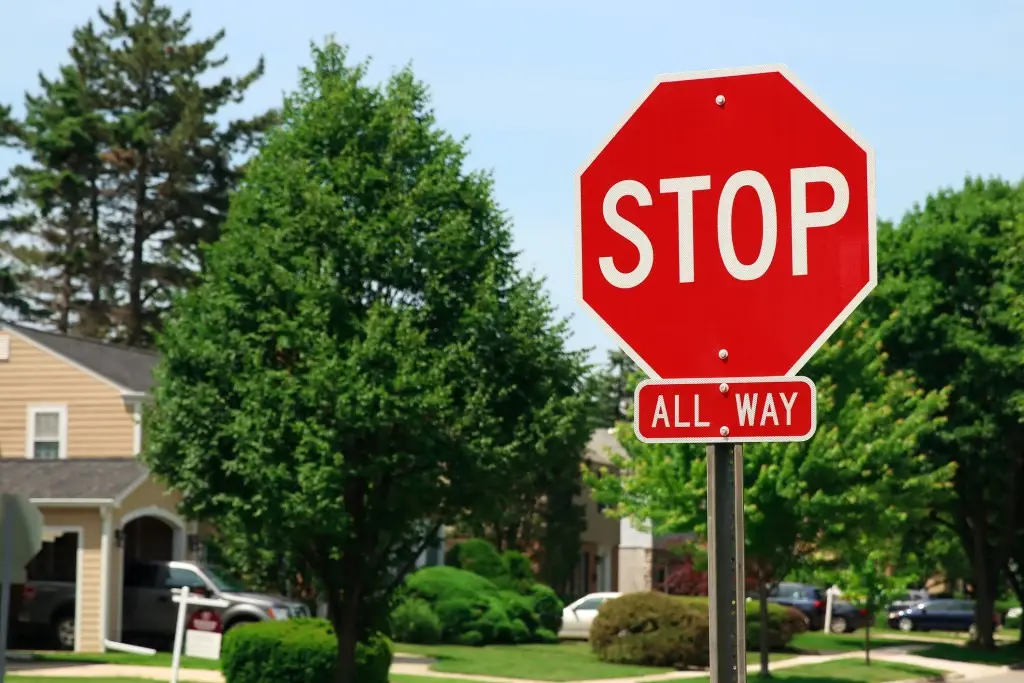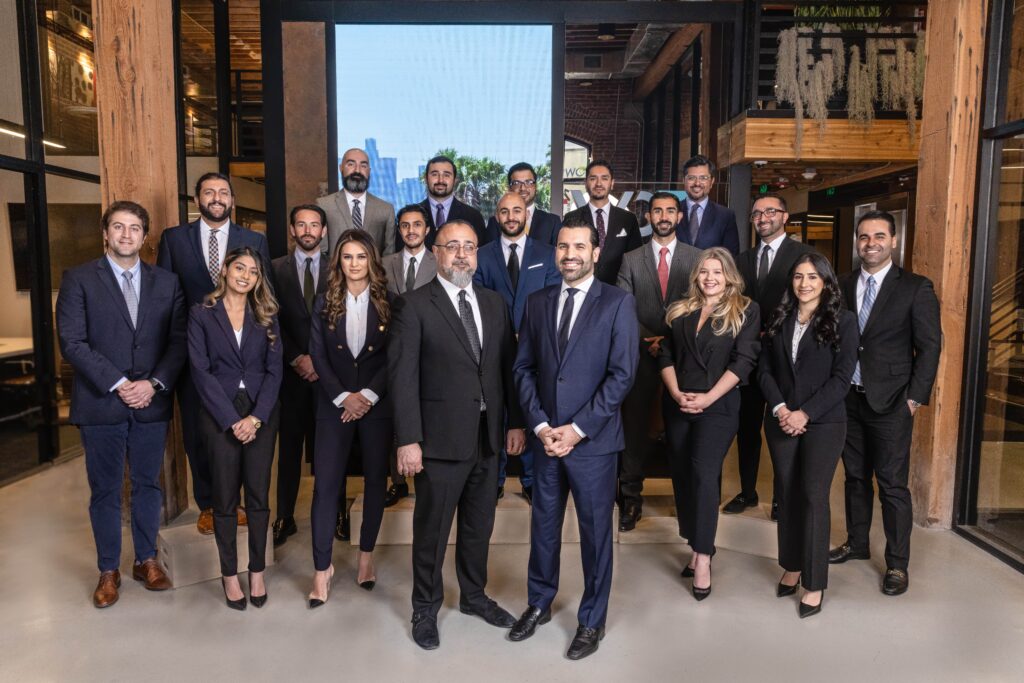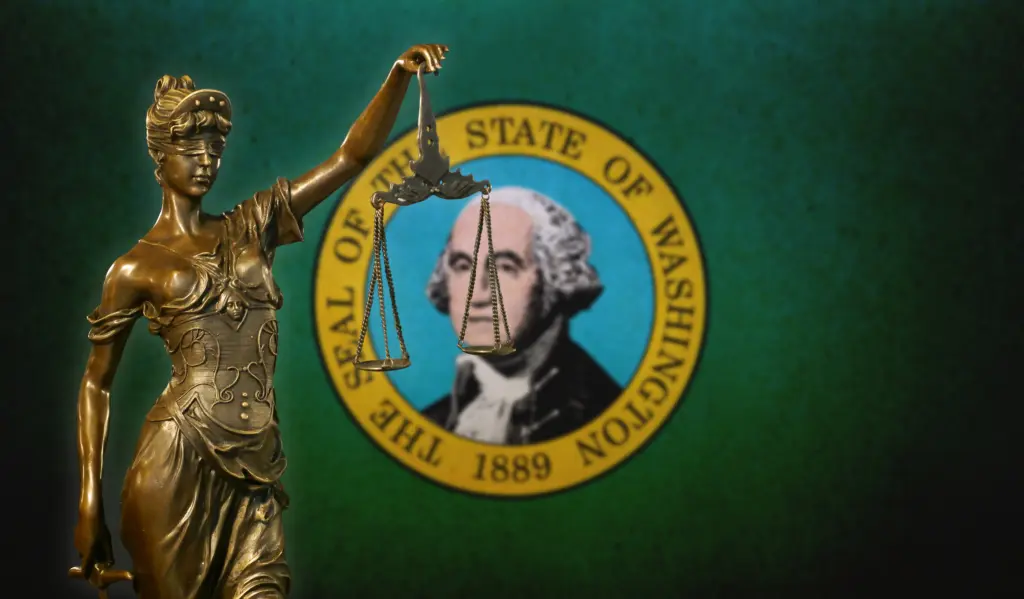Four-way stops can be tough to navigate through, especially when faced with drivers at all four stops. Imagine piling in all at once and not knowing who’s entitled to go first. There is a system in place to make sure the correct driver is given the right of way at an intersection, and that system governs our way of life here in California.
Below you will find an in-depth breakdown of four-way stop rules and regulations, as well as some pointers on what to do if you find yourself injured from an accident at an FWS.
What Is a Four-Way Traffic Stop and What Are the Rules?
A four-way stop is an intersection where traffic from all four directions is required to stop. Typically, these intersections are marked by stop signs at each corner and sometimes accompanied by a supplemental road sign stating “4-WAY.
| Scenario at the Intersection | Who Goes First | Rule Applied | Driver Tip |
|---|---|---|---|
| One vehicle arrives first | That first vehicle | First come, first served | Make a complete stop, signal, then proceed confidently. |
| Two vehicles arrive at the same time (perpendicular/crossing paths) | The vehicle on your right | Right goes first | If you’re to the left of the other car, yield and make eye contact. |
| Two vehicles arrive at the same time, opposite directions; one goes straight, one turns left | The vehicle going straight | Straight goes first | Left-turner yields until the straight-through car clears. |
| Two vehicles arrive at the same time, opposite directions; both turning left | Both may turn simultaneously | Mutual left turns | Turn “left-to-left,” passing in front of each other with care. |
| Two vehicles arrive at the same time; one turning right, one turning left (adjacent approaches) | Right-turning driver | Right turn over left turn | Right turn is shorter/conflict-free; left-turner yields. |
| All four arrive nearly together | Proceed one at a time, yielding to your right | Yield to the right / take turns | Don’t “jump” the queue; use hand waves/eye contact to clarify. |
| Any approach | Nobody until a full stop | Complete stop required | Rolling stops (“California Roll”) are illegal—stop fully before proceeding. |
| Pedestrian in crosswalk | Pedestrian first | Yield to pedestrians | Check all crosswalks before moving, even when it’s “your turn.” |
Here’s how it really works in California:
- First Come, First Served: The first vehicle to arrive at the intersection has the right of way. That means if you’re the first to arrive, you’re the first to go.
- Right Goes First: If two vehicles arrive at an intersection at the same time, the vehicle on the right has the right of way. So, if you and another car arrive simultaneously, and the other car is on your right, they get to go first.
- Straight Goes First: If two vehicles arrive simultaneously and are across from each other, the vehicle going straight has the right of way. If you’re trying to turn left and the car across from you is going straight, you should wait for them to go first.
- Everyone Must Stop: Every car approaching a four-way stop must come to a complete stop. Rolling stops (where the car doesn’t fully stop) are not allowed. They’re actually illegal. Ironically these stops are so prevalent in California; they are coined “California Rolls.”
Also, when one vehicle is turning right and another is turning left at the same intersection, the driver turning right is granted the right of way. Making left turns is more straightforward—when both drivers are turning left at the same time, they can go ahead in unison.
Common Mistakes Drivers Make at Four-Way Stops
We believe in defensive driving on the road, especially when crossing a four-way stop.
Drivers can find themselves in dicey situations if certain mistakes are made at an intersection.
Our firm has listed a few common mistakes motorists make when dealing with four-way stops.
- Trusting turn signals: Drivers should not trust that people are using their blinkers properly and should be defensive.
- Confusion: Four-way stops can be confusing, and confusion can lead to accidents.
- Prolonged stops: Prolonged stops at a four-way stop sign can also confuse other drivers and cause traffic jams and chaos at an intersection.
- Changing lanes in an intersection: Drivers should never change lanes when passing through an intersection, whether they are going straight or making a turn.
- Not knowing the right-of-way: Drivers should know the right-of-way rules at four-way stops and follow traffic signals / signs to the best of their abilities.
Most Common Four-Way Stop Accidents
Accidents at four-way stop intersections hold significant risk, frequently leading to T-bone, broadside, side-impact, or right-angle crashes.
These kinds of accidents can cause serious harm, including traumatic brain damage, injuries to the neck, and severe damage to the spinal cord.
Drivers who refuse to stop or misunderstand the rules of a four-way stop are at a higher risk of causing fatal accidents, especially for pedestrians crossing the street at an intersection.
Who Is at Fault in a Four-Way Stop Accident?
Assigning liability in accidents at four-way stop intersections can be challenging. It’s technically your word against the other drivers. Nonetheless, it is typically the driver who neglected to respect the right of way of the other motorist who is held liable.
In these instances, we highly suggest speaking to a credible personal injury lawyer that can help you recover any damages from your accident and start an investigation.
Need Help After an Accident? Call West Coast Trial Lawyers
If you have been involved in car accident due to someone’s negligence or recklessness at a four way stop, you may be entitled to financial compensation. At West Coast Trial Lawyers, our team of car accident attorneys are well versed in handling claims and are confident that they can get you the financial compensation you deserve for your losses.
To schedule a free case evaluation with one of our top-rated personal injury lawyers, we welcome you to contact us by calling (213) 927-3700 or filling out this online contact form.












































































